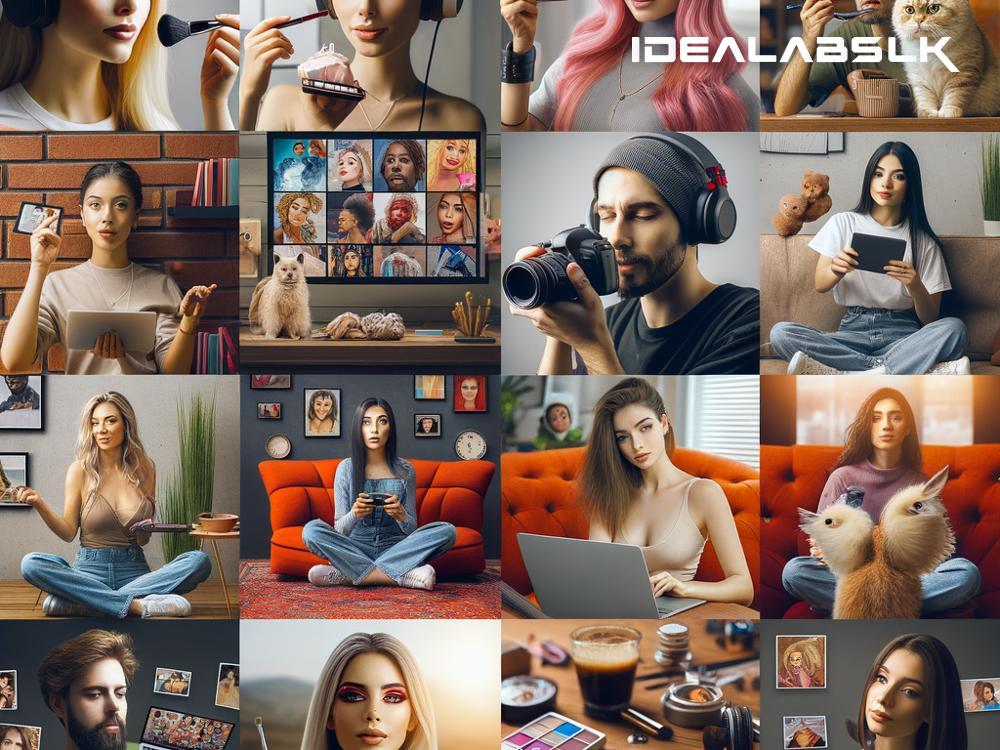How Social Media Influencers Changed Marketing
In today's digital age, social media influencers have revolutionized marketing in ways we never imagined possible a decade ago. Remember the times when celebrities on TV commercials were the ultimate marketing strategy? Fast forward to now, and you'll see social media platforms bustling with influencers promoting everything from lipsticks to vacations. So, how exactly did these social media stars change the marketing game? Let's dive in.
From Billboards to Instagram Stories
Gone are the days when seeing a product on a massive billboard on your way to work was the norm. Now, it’s all about Instagram stories, TikTok videos, and Facebook posts. Influencers, with their large followings and the power to engage audiences through personal stories and content, have become the new billboards. The difference? These “billboards” talk back, answer your questions, and even make you feel like a friend recommending a product.
Trust and Relatability
One of the most significant ways influencers changed marketing is by building trust through relatability. Unlike traditional celebrities, influencers often start their journeys as regular individuals sharing their hobbies or interests. As they grow their audience, their recommendations hold a weight of sincerity and authenticity. When a beauty influencer raves about a mascara or a gaming influencer shares their favorite tech, their followers, who trust their opinions, are more likely to make a purchase. This trust factor is a game-changer for brands.
Niche Marketing at Its Finest
Social media influencers specialize in niche marketing. Whether it’s fashion, gaming, wellness, or food, influencers have carved out specific niches. This specialization allows brands to target their marketing efforts more effectively. If a company specializing in vegan skin care wants to promote their products, collaborating with a vegan lifestyle influencer will likely yield better results than traditional broad-spectrum advertising. This tailored approach leads to higher engagement and conversion rates.
The Power of User-Generated Content
Influencer marketing has unlocked the potential of user-generated content. When influencers use or wear products and share their experiences, they create content that feels more personal and genuine compared to professional advertisements. This not only helps in building a brand’s identity but also in creating a library of authentic content that resonates with the audience. Moreover, when followers share this content, it amplifies the reach exponentially, often at a fraction of the cost of traditional marketing methods.
Engagement Over Size
Initially, the craze was all about the number of followers an influencer had. However, the focus has progressively shifted towards engagement. Marketers have realized that an influencer with a smaller, more engaged following can have a more significant impact than someone with millions of passive followers. This shift has given rise to micro and even nano influencers, whose recommendations are seen as more personal and trustworthy.
Direct and Immediate Feedback Loop
Social media platforms provide an immediate feedback loop that was almost impossible in traditional marketing channels. Influencers and brands can instantly gauge the reaction to a product or campaign and make real-time adjustments. This dynamism not only helps in fine-tuning marketing strategies but also in developing products and services that better meet customer needs and preferences.
Empowering the Consumers
Lastly, influencers have empowered consumers like never before. Through comments and direct messages, followers can ask questions, express concerns, and give feedback directly to the influencer and, by extension, the brand. This two-way communication fosters a sense of community and belonging among consumers, making them feel valued and heard.
Conclusion
The rise of social media influencers has undoubtedly reshaped the landscape of marketing. By making marketing more personalized, engaging, and transparent, influencers have managed to cultivate a new era of consumer-brand relationships. Brands that understand and leverage the unique advantages of influencer marketing are likely to stay ahead in the game, building loyalty and trust in an increasingly crowded market.
In essence, social media influencers have turned marketing into a more human experience. It's no longer just about selling a product; it’s about building connections, sharing stories, and creating value. And perhaps, that’s the most significant change of all.

